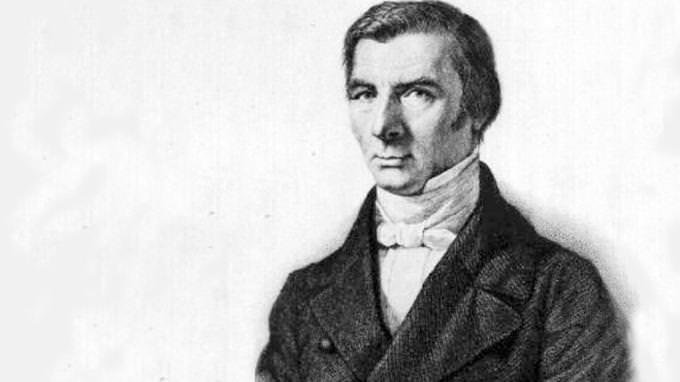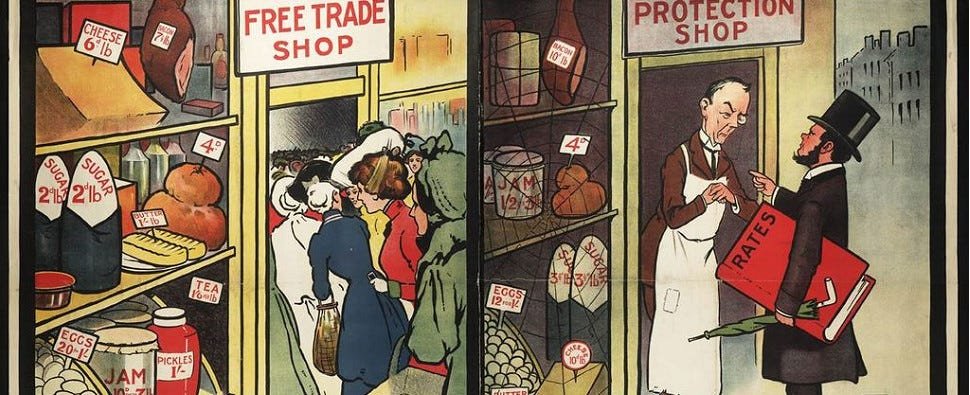A Reflection of Bastiat: Addressing “Government,” “The Law,” and “The Candlemakers’ Petition”
0 comments
An Introduction to Bastiat  ?anchor=center&mode=crop&width=1200&rnd=131444222800000000
?anchor=center&mode=crop&width=1200&rnd=131444222800000000
Image Source
Frédéric Bastiat is a renowned French economist and writer whose papers on the nation's government before and after the French revolution pushed economists, citizens, and politicians to question and analyze their systems in new lights. Recently, I read from some of Bastiat's works and the chance to analyze and reflect on them from the viewpoint of a twenty-first century American. The concepts of the relationship between citizen's demands and government taxes, individual rights and liberties, and the use of satire to highlight the battle between protectionism and free trade were a few of the most interesting topics I came across and would like to cover in this post.
The Relationship Between Demands and Taxes
 Image Source
Image Source
As a young American adult who grew up in the south, I am no stranger to citizens, informed or not, who had grievances with the government or how it was being ran. Whether it was the president who was elected into office, the taxes they were paying, or any other problem they could think of, they always freely voiced their displeasure about the governmental system in place. Reading from "Government" gave me the opportunity to see the unfairness of citizens in their demands from the government and also the corruption that can exist within the government.
Bastiat makes the point that as citizens under a government, we have the tendency to make demands for programs or assistance from the government while complaining and retaliating against the taxes that go to paying to these services. In this point, it shows the dilemma that comes from the government's financial needs to meet our demands, while we refute and resent the taxes or payments while insisting our demands are still met. This gives way to incoming political parties or entities making promises of change or that they will meet the requests of the people, only to have to sacrifice on many of their assurances or compromise certain guarantees for another, all while still taxing or replacing old taxes with new ones.
This portion of Bastiat's writing left me pondering at what point is taxation fair and necessary and at what point does it become a way for the government to use its 'rough, absorbing hand' to indulge itself on the work of its citizens. Building on my recent post and last week's discussion on socialism, this portion of writing also led me to be curious as to how governments who control their nation's choices and quality of life, such as we see in North Korea and Cuba, relate to the system talked about in Bastiat's writings.
Indvidual Freedoms vs Protectionism 
Image Source
In reading "The Law" and "The Candlermakers' Petition," I feel I noticed quite a few similarities between the discussion of what Bastiat describes as individual rights and his argument on protectionism. I feel that within his argument against the concept and practice of protectionsim, Bastiat also builds his case on the importance of individual freedoms.
In our recent discussion of socialism, a major discussion point was the importance of the freedom to fail, a freedom that I think is highlighted by the argument for a free trade/market system instead of protection by the government. In a system where individuals are not given the freedom to fail, to practice entrepreneurship and rival against other domestic and foreign competitors, the choice and quality of goods in a nation declines. With no outside competition, there is no motivation to grow or improve. Operating under a protectionist system destroys the incentive for businesses to compete on prices or quality, often bringing the quality of life in that region down along with the variety of products offered. This violates many individual freedoms, from the freedom of choice to the freedom to fail, and with this system of market reminding me of the lessons from socialism, I can understand why Bastiat took a stance against it and the socialist system.
Furthermore, using a sarcastic, satirical approach to addressing the problem helped his argument resonate with the public. I believe that through this method Bastiat was able to make his case against this protective system more relatable to the French masses and helped push the country towards adopting a free market system later on in the country's future.
Bastiat's writing also made strong connections between the protection of individual liberties and the duty of the law/government. To Bastiat, the purpose of the law and the government enforcement of their laws was to provide defense to the people of the nation and to defend their liberties and freedoms from threats both foreign and domestic. With the belief that these freedoms are natural and come from the simple existence of life, not the law, as it is the law's duty to protect this rights, Bastiat made strong claims are strictly professed his belief that the practice of protectionism was a form of legal plunder by the government. With these strong claims, it makes me question what practices in today's society that we could classify as legal plunder that just goes unnoticed in a society that is continually growing more politically uninformed.
My Reflection on Bastiat
Bastiat is without a doubt very passionate about what he believed, as we can see in his writings. He was very extreme in many regards, but during a time of such drastic change in France, it may have been his fiery perceptions that helped pave the path for French to become the nation it is today. Whether it was his impact that did this or not, Bastiat is without a doubt one of the most important economists to study, even in this modern day. His writings on what government should look like, the influence of government on the economy and market, and his stance on the individual liberties of the French population have solidified Bastiat as one of the most significant economists to ever exist.



Comments